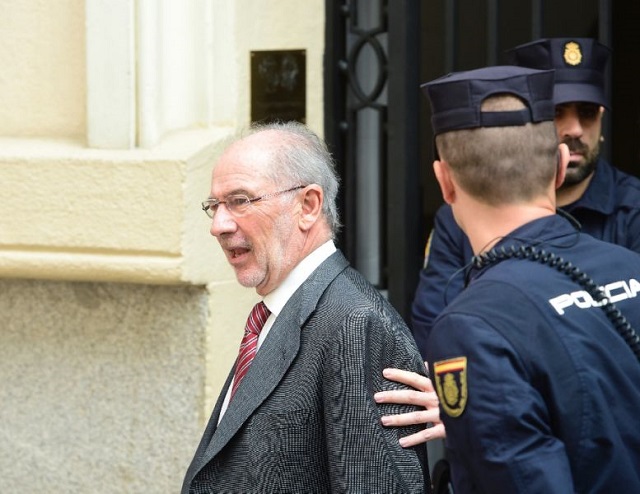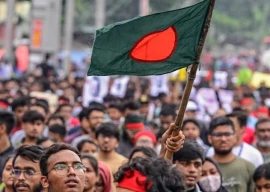
Rato, a former Spanish economy minister, is accused of falsifying information about Bankia's finances to encourage investors to buy into its stock market listing. He will stand trial along with 30 other former Bankia executives for investor fraud and for falsifying 2010 and 2011 accounts, Spain's High Court said in its ruling.
The court will also put Bankia itself and its parent company BFA on trial over the failed listing, as well as accounting firm Deloitte and one of its employees. Deloitte audited the lender's accounts. Bankia was rescued in 2012, less than a year after it was listed, and tens of thousands of small investors who had converted their savings to shares lost everything.
Is there a balance of payments crisis in the making?
The near-collapse of Bankia almost brought down Spain's whole financial sector, which was bailed out later that year by international creditors for 41 billion euros ($48 billion).
Last year, the Supreme Court ruled that "serious inaccuracies" in the information provided by Bankia misled investors. When Rato was questioned in court in 2012 over the Bankia listing, he reiterated his claims that Spanish authorities held responsibility for events at the lender including the timing of its ill-fated stock market flotation.
Public prosecutors in June asked that Rato, 68, be given a five-year jail sentence over the Bankia listing. They have argued that as the bank's "main executive," he was "fully aware of the inconsistency of the Bankia project and of its financial weakness" but still gave the green light for the listing.
Bankia was created in 2010 by merging seven regional savings banks, part of a financial sector shake-up brought on by the collapse of a construction boom that dragged Spain into a severe recession. Last year, the bank said it had paid out 1.2 billion euros in compensation to 190,000 small investors, but added it still had about 30,000 claims pending.
Rato was sentenced in February to four years and six months in a separate case for misusing funds when he was the boss of Bankia, and Caja Madrid before that. Rato and the other executives were accused of having paid for personal expenses with credit cards put at their disposal by the lenders, without ever justifying them or declaring them to tax authorities.
These expenses included petrol for their cars, supermarket shopping, pricey holidays, luxury bags or parties in nightclubs. The case caused an outrage in Spain, where it was uncovered at the height of a severe economic crisis that left many people struggling financially - made all the worse because Bankia later had to be nationalised.
Suspect arrested over Greek letter bomb attacks
Rato denied any wrongdoing and said the credit cards were for discretionary spending as part of executives' pay. He was allowed to remain free and without judicial supervision pending a final verdict in the case.
Rato was economy minister and deputy prime minister in the conservative government of Jose Maria Aznar from 1996 to 2004, before going on to head the International Monetary Fund until 2007.
He is the third former IMF chief to get into trouble with the law.
His successor Dominique Strauss-Kahn was tried in 2015 on pimping charges in a lurid sex scandal, and was acquitted. And Christine Lagarde, who took over from Strauss-Kahn and is the current IMF chief, was found guilty of negligence over a massive state payout to a tycoon when she was French finance minister, though she received no penalty.





1730884134-0/BeFunky-collage-(26)1730884134-0-270x192.webp)




1732618327-2/Untitled-design-(7)1732618327-2-270x192.webp)






COMMENTS
Comments are moderated and generally will be posted if they are on-topic and not abusive.
For more information, please see our Comments FAQ